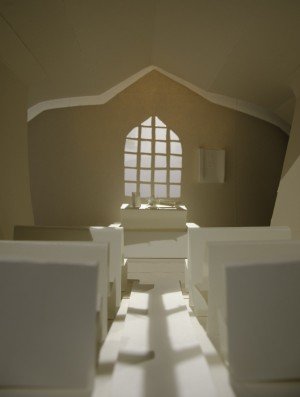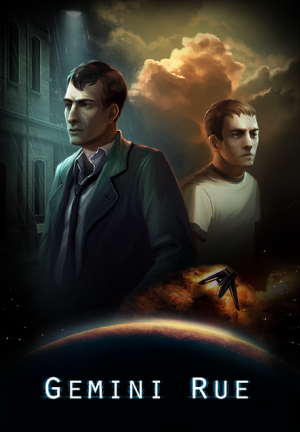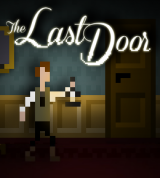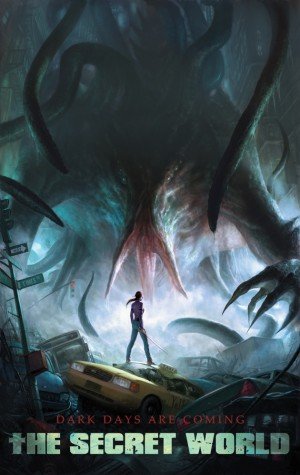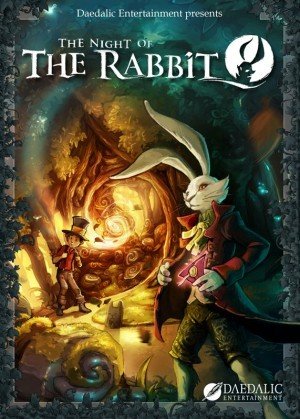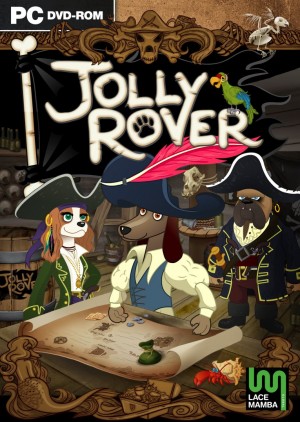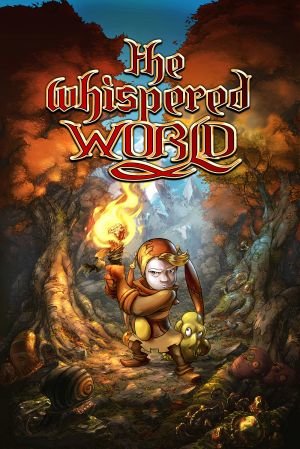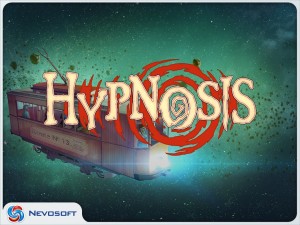Simon Karlsson - A Song for Viggo interview
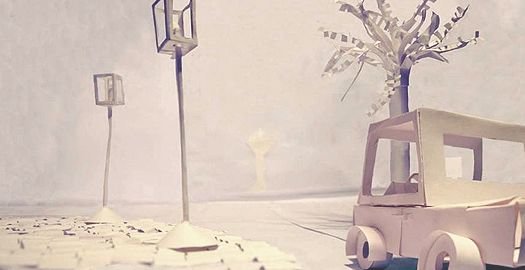
Swedish indie developer Simon Karlsson surely has an interest in the depths and complexity of the human psyche. His first commercial adventure game project, A Song for Viggo, is an obvious example of that, as players will explore the aftermath of a tragedy in which a father who killed his own son by accident must now deal with the inevitable feelings of guilt and loss. Moving through the various phases of grief, A Song for Viggo is a unique paper art style that Karlsson is literally creating with his own hands. To get a better understanding of this courageous project that just launched on Kickstarter, we got ahold of the game’s creator and discussed all-things-Viggo.
Ingmar Böke: Hello Simon, thanks a lot for taking time for us. Please introduce yourself to our readers and tell them a bit about your background and the motivation for doing your own games.
Simon Karlsson: Uhm, I'm Simon! Hi, fellow readers!
Well, I've always been interested in creating stuff. When other children my age played with cars, I played with crayons (so boring as a child). So I kinda grew up with my dream of "hey, I'm gonna be an artist." And being told my whole childhood that it wasn't a possible job just gave me more motivation. So, I dropped out of high school and went to a contemporary art school. In that time I kinda accepted that I was gay, and being a dude with that preference in a small conservative Christian hillbilly village, it was sort of a logical thing to just move to Stockholm after art school.
Then I got tired of art and the people therein. So I started trying out fashion photography. It went well, and I still do it to date; however, I'm not too keen either on that industry. I'm not particularly interested in being popular in the right crowds since I (almost too) often speak my mind. So, one day I just figured it out: I realized that I played video games every single day, several hours, my whole life. Always thought I was too dumb to make games, but then I found this awesome variety of game engines for a particular kind of games. Voila – a door opened. And it felt good.
 |
Simon Karlsson |
Ingmar: Have there been any special encounters with certain games that made you see the potential of this medium for your own purposes ?
Simon: For my own purposes? I don't know. But when I played Façade I did realize some of the potential a game could have, using uncommon topics (in this case relations). Final Fantasy 7 made me weep and the intense effort of getting Aeris resurrected made me have to go to the optician to get glasses. Planescape:Torment left me in awe, with all that lore on different kinds of planes and how the universe was built. So maybe in the long run I've been colored by different encounters in different games, but who hasn't, right?
 |
 |
Under construction: the paper model of Viggo's father Steve
|
Ingmar: The aftermath of losing a child is a very strong theme for a game. It becomes an even stronger theme when one of the parents killed their own child by accident. While you – fortunately (!!!) – didn’t suffer that tragedy yourself, I understand the inspiration came from very personal things you’ve encountered. Tell us about the different themes involved and what inspired you to use them in a game.
Simon: I'm glad that I haven't experienced the loss of a child. But there was a time when I was just lost, got really depressed, existential, and developed obsessive compulsive disorder. To this date I still eat antidepressants, but a part of me does this game for my own sake as well. I need to delve deep into the anxiety and do something creative with it instead of just being down, I guess. Other topics like infidelity and suicidal thoughts are also present in some of the chapters of A Song for Viggo. I'm quite interested in the human brain, but also a bit afraid of the irritating train of thoughts it can bring.
So… I guess it's a bit of everything that inspired me to start this project. Maybe the fear of anxiety is a part of my inspiration? I've always been interested in the idea of the perfect life, especially when depressed (therefore interested in fashion, the utopian human who doesn't exist). And I guess many people have this dream about "one day I'll have my family and everything will be set", but the fear of not being able to control the constellations of what a family is, and its dynamic, is more fearful and realistic. Hopefully if we all come to terms with what we can't control in our lives, it gets easier.
Ingmar: You’re doing personal research by talking to people who really lost a child. Obviously, this is a very intense form of research. How has this experience affected you on a personal level?
Simon: The research started out not that long ago. I needed to get the details right. And I still do. No big details... just how people acted in the following days after such a tragedy. One interview I had affected me quite. I didn't know the person behind the tragedy before, but she agreed to tell her story. And it was so, so strange. Just like the parent in my game, she backed over her child. And the child's name was Simon. And she herself had worked with media doing stop motion and miniature works. I was like, damn, the similarities. You probably just think I'm crazy but, somehow, it feels like it's my destiny to do this project. Maybe. I don't know.
 |
The airport |
Ingmar: I’m really interested in finding out how you’re implementing these themes interactively. Please give us an idea of the interactive elements in A Song for Viggo and tell us how you’re combining story and giving the player control to create a strong narrative and flow.
Simon: It's not really a flow I'm after. Maybe an emotional one in that case, but I think interactivity is more correct than the term gameplay in my case. Take just the classical point-and-click-adventure mechanics, disable the inventory and, well, interact with stuff. It's quite linear even if it has choices to make. But I need the interactivity to make it interactive – does that sound cheesy? A big part of the game is just wandering around in the atmosphere, talking with the family members, interacting with objects, with no necessary goal in mind. Like in the introduction, before the first chapter, the mom, Karen, takes their daughter Sarah to the restroom at the airport. Your mission is just to wait two minutes for them to be finished so you can carry on – just like real life.
Ingmar: Please explain the whole choice-and-consequence element of the game.
Simon: Every chapter has some choices, but they're invisible. As in there is no window popping up asking "yes or no". Small spoiler warning In the first chapter, you go to a café before going to the funeral agency, just because it's overwhelming. You order a cinnamon bun, but don't eat it. Before you exit the café you have an option to pick up the bun, to give to your daughter Sarah, since it stupid of you to let it go to waste and your daughter could need something to ease her pain. Consequences would be if you do give Sarah your cinnamon bun, your wife Karen will be angry with you for "having time to go to the café." If you don't take the bun, well, then your wife will be mad at you for going to the café and not thinking of your family.
Another example is during one chapter where it's winter. You have booked an appointment at the therapist. To go to the therapist you need the car. The car is frozen, and it needs to be warmed up before you take it out for a drive. If you forget to warm it up, the car won't start. Instead you'll have to walk to the therapist, but you will accidentally fall on an icy spot on the pavement, which means you'll suffer light head trauma and spend some time at the hospital, missing the therapy session, with another consequence that your OCD gets more intrusive. End spoiler
Ingmar: The paper art behind your game is fascinating, so I’d be very glad to hear some insights into the creative process this unique type of design requires.
Simon: Haha. I don't know. Patience? Paper and glue, too. I refurnished my closet (I guess it's sort of a walk-in-closet) into a workshop. But it's 2x2 meters so the space sucks. But it's still good, I guess. When doing objects and furniture out of paper, it's more a process of having several things going at the same time, for the glue to dry. There ain't that much air condition in the closet so I do get a bit light in the head sometimes.
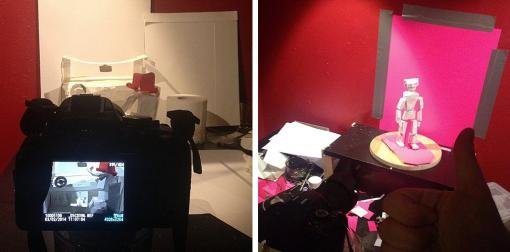 |
Shooting scenes inside Simon's closet / workshop; animating characters |
Ingmar: Clearly you are a very artistic person. Yet it would be interesting to know how you came up with this particular art style.
Simon: I think it started out with being inspired by The Dream Machine. That and a combination of being untalented with 3D programs. I'm the kinda guy who needs to see the work done without the whole progress of building a model, UV-map it and so forth. For me, analogue materials are more direct result. And maybe it's more real, people can see what it is, that it's a physical scene. I also kind of like the fragile paper as a material, and the whiteness, contrasting the dark story.
Ingmar: In some ways, A Song for Viggo seems to me like a statement against a lot of things that are going wrong in the gaming world right now. If you agree with that: How would you define that statement and in what ways do you think that your game is a unique project in today’s industry?
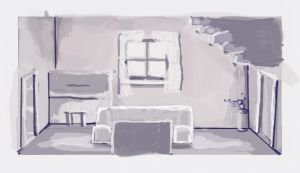 |
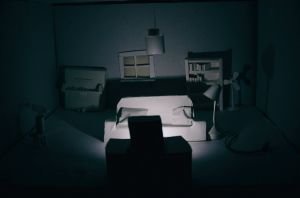 |
From concept to construction |
Simon: It's so hard to say that "hey I've made something unique", because no one really knows what's out there, never ever coming to surface (I sound like The X-Files now). There are several indie games touching the subject of depression (Depression Quest, The Cat Lady, Fragments of Him and Actual Sunlight). But overall the uniqueness of it might be that I'm doing all the content alone.
But my main motivation why I like indie games is that you don't have to put up with the rule "make games where the money is" if you don't want to. Ten years ago the industry raved on about how J-RPGs had stagnated. Today, there are so many more genres that are just doing the same thing over and over again. So it's not the J-RPGs, it's the whole AAA-industry. You save the world a hundred times but never really a soul. I do play those games, but I'm not that emotionally attached to a story at all nowadays.
I'm also quite disturbed by the fact that you're almost always playing as a hunky piece of man-meat, and interact with these women in skimpy outfits. One guy at my school said "oh, come on, you gotta have something to look at when you play", refering to their breasts. I'm so bored with it. Experimenting with sexual arousal in virtual worlds is interesting, but combining it with generic and stereotypical characters and a story about how a hero has to save a princess is just porn. I mean, there is a difference between burlesque and a strip club.
 |
Karen's piano |
Ingmar: You’ve posted some very impressive excerpts of Viggo’s music. What importance does music have in the game and how would you describe the mood and style you’re aiming for?
Simon: For me the music is very important. Karen mourns by learning to play the piano during the whole game (therefore the name A Song for Viggo). It's the only music that you'll hear, from her piano. Even in the city you will hear her songs (in combination with real-life recorded ambience, of course).
The mood or style is maybe a bit Yann Tiersen goes Erik Satie, at least that’s what I’m aiming for. I'm not that good of a player. I can't even read sheet music, so that's kinda why I compose my own songs. I've been composing stuff for like 6-7 years, but never understood where to use the songs until this project.
Ingmar: I have to admit that I don’t know much about the game industry in Sweden, so please give us an idea of the Swedish scene.
Simon: The industry in Sweden became awesome a couple of years ago. Mostly because of Battlefield and Minecraft. Payday 2 released a year ago and did really well, apparently. If you live in Stockholm and aspire to work within the AAA-industry, then it's good. How it is for indie developers, I'm not sure. We have the upcoming Rymdresa and Project Rain right now. Year Walk, Unmechanical and the Amnesia series are also from Sweden. But the indie developers are more spread across the whole of Sweden.
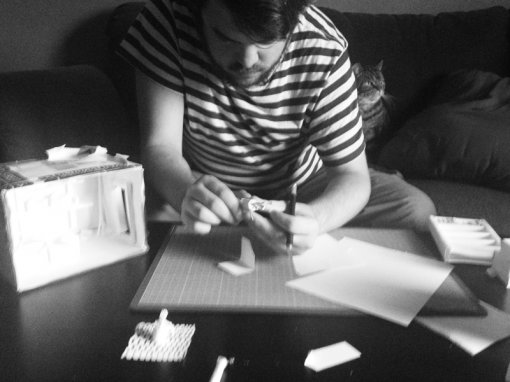 |
Simon at work on A Song for Viggo |
Ingmar: On a related note, Josef Fares is a very popular film director in Sweden. His second full-length movie Kopps had a cinema audience of around 1 million people in Sweden, which is pretty unbelievable considering the population. Do you see any chance that a really big name like Fares now also doing games, as he did with Brothers: A Tale of Two Sons, might help the Swedish gaming scene grow even further?
Simon: Surely, a director is good for directing (oh the logic). However, I don't think Fares’ name/title actually did anything for the project's success, but more his ambitions and skills. So it’s hard to answer that question in general. Sure, people with big names that worked previously in other areas could affect the gaming industry for the greater good, no matter if it's Sweden or not.
Ingmar: Beyond A Song for Viggo, do you have any long term development plans? How would you like to continue after the game is finished?
Simon: I have some small ideas under development concerning the human brain, gamification in life, and trying to tap into the virtual reality stuff. Maybe. Maybe not. It's still just fun ideas I have. Otherwise, I don't know. Haha, maybe do another game made of paper. If this doesn't get funded now though, I guess I'll have to sell hamburgers or something.
A Song for Viggo Kickstarter video (filmed and edited by Jimmy Beris).
Ingmar: Again, thank you very much for your time. It has been a real pleasure, Simon. All the best with your Kickstarter campaign. I’ll leave the stage to you now… please tell our readers why it is a good idea to support you on Kickstarter.
Simon: Because you've saved the world a hundred times, but never a single soul.



